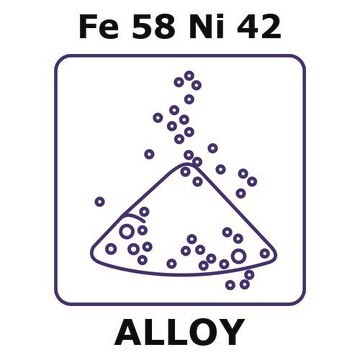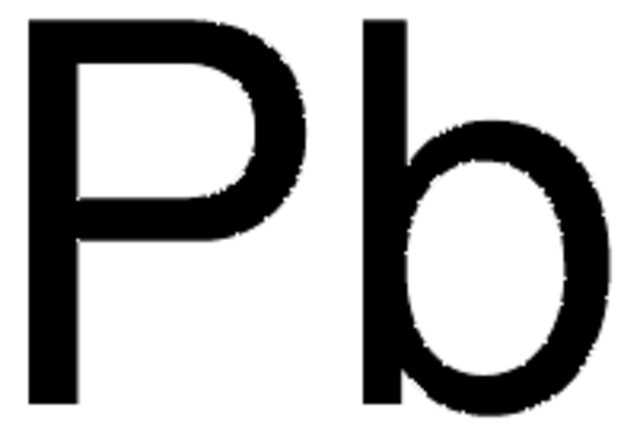577995
Nickel
nanopowder, <100 nm avg. part. size, ≥99% trace metals basis
Synonym(s):
Nickel nanoparticles
About This Item
Recommended Products
Quality Level
Assay
≥99% trace metals basis
form
nanopowder
resistivity
6.97 μΩ-cm, 20°C
avg. part. size
<100 nm
bp
2732 °C (lit.)
mp
1453 °C (lit.)
density
8.9 g/mL at 25 °C (lit.)
application(s)
battery manufacturing
SMILES string
[Ni]
InChI
1S/Ni
InChI key
PXHVJJICTQNCMI-UHFFFAOYSA-N
Application
- catalytic applications
- hydrogen transfer reactions
- contrasting agent in biological systems
Signal Word
Danger
Hazard Statements
Precautionary Statements
Hazard Classifications
Aquatic Chronic 3 - Carc. 2 - Skin Sens. 1 - STOT RE 1 Inhalation
Target Organs
Lungs
Storage Class Code
4.1B - Flammable solid hazardous materials
WGK
WGK 2
Flash Point(F)
Not applicable
Flash Point(C)
Not applicable
Choose from one of the most recent versions:
Already Own This Product?
Find documentation for the products that you have recently purchased in the Document Library.
Customers Also Viewed
Articles
Nickel complexes catalyze various synthetic reactions like oxidative addition, C-H activation, and cross-coupling.
Magnetic materials find diverse applications from data storage to renewable energy.
Our team of scientists has experience in all areas of research including Life Science, Material Science, Chemical Synthesis, Chromatography, Analytical and many others.
Contact Technical Service







